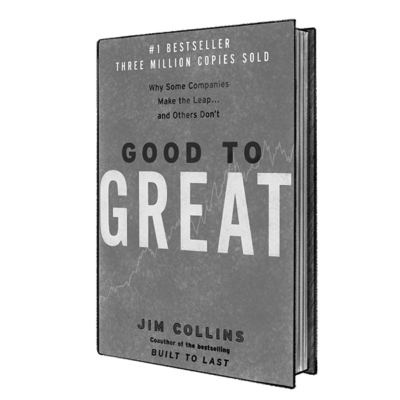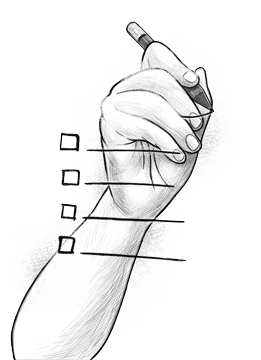Art Of Subtraction
11 December 2022

Hi, The Investor’s Podcast Network Community!
We’re coming your way with another wisdom-packed weekend edition of We Study Markets, in just 4 minutes to read.
Today’s theme, building on last weekend’s newsletter about doing “first things first,” focuses on the benefits of subtracting distractions from our lives.
Let’s jump in 💥
Understand the financial markets
in just a few minutes.
Get the daily email that makes understanding the financial markets
easy and enjoyable, for free.
QUOTE OF THE DAY

“The art of subtraction is incalculably important, particularly in an age of information overload when our minds can so easily become scattered…
Most people make the mistake of adding too much complexity to their lives. They skim the surface, preoccupying themselves with the superficial and the extraneous. As the best investors show, sustained excellence requires us to subtract and go deep.”
BROUGHT TO YOU BY
Do you have the right insurance for your rental property?
Get a free quote in minutes to find out how Steadily can save you time and money on your landlord insurance.
Get a quote online today at Steadily.com
THE MAIN STORY: MAKING A STOP DOING LIST
Overview
Now is the time to start brainstorming your New Year’s resolutions.
Often, these are filled with things people would like to add to their lives, famously the intention to begin a new workout routine.
It’s easy to think that adding new habits to our lives will make us happier, healthier, or more successful.
However, I’d argue that focusing on removing negative influences is a far more practical and powerful tool for achieving these aims.
We naturally look around and envy what others have, which prompts us to ask ourselves, “what am I not doing that they are?”
Maybe you conclude that more exercise, reading, or organization will help. And maybe they would.
Perhaps, though, the right question is, “what are they not doing that I am?”
Via Negativa
The Latin phrase ‘Via Negativa’ essentially refers to the study of what not to do.
Nassim Taleb, author of The Black Swan, clarifies, “it’s easier to know something is wrong than to find the fix.”
Rather than, for example, trying to envision and plan the perfect way to spend your weekend, try listing out everything you don’t want to do.
While we may be overwhelmed trying to plan a special day and end up doing nothing at all, discerning what you know you’d like to avoid, and doing so, is almost guaranteed to make you happier.
It’s addition through subtraction.
Rather than finding new things that make you happier, you remove the things making you unhappy.

Thinking in reverse
Famous entrepreneur Naval Ravikant has said, “I don’t believe I have the ability to say what is going to work. Rather, I try to eliminate what’s not going to work. I think being successful is just about not making mistakes. It’s not about having correct judgment. It’s about avoiding incorrect judgments.”
Does this sound familiar to Charlie Munger’s inversion principle?
He has jokingly quipped, “All I want to know is where I’m going to die, so I’ll never go there.”
The point is to flip your problems upside down and think them through in reverse.
Instead of pondering the daunting question of how to be a better investor, consider all the things a bad investor might do. And then don’t do them.
A hypothetical
Jim Collins, the exceptional writer of the book Good To Great (among many others), says that the best New Year’s resolution is a “stop doing” list.

He poses the following hypothetical:
Suppose you receive two phone calls. The first tells you that you’ve inherited $20 million with no strings attached. The second informs you that you have a terminal disease with no more than ten years to live.
What would you do differently after these two calls? In particular, what would you stop doing?
Takeaways
This Sunday, I hope you can embrace Via Negativa, invert your problems, and compile a “stop doing” list for either your personal life, work, investing, or all three.
As William Green so eloquently captured in the Quote of the Day, we ought to see this as the art of subtraction.
Reducing complexity and noise in modern life is no easy feat, but it may deliver the satisfaction many of us seek annually with our New Year’s resolutions.
Dive deeper
Check out our past interview with Jim Collins for more of his profound insights, or listen to Clay Finck’s podcast episode on the worldly wisdom of Charlie Munger.

SEE YOU NEXT TIME!

That’s it for today on We Study Markets!
See you later!
If you enjoyed the newsletter, keep an eye on your inbox for them on weekdays around 6pm EST, and if you have any feedback or topics you’d like us to discuss, simply respond to this email.








